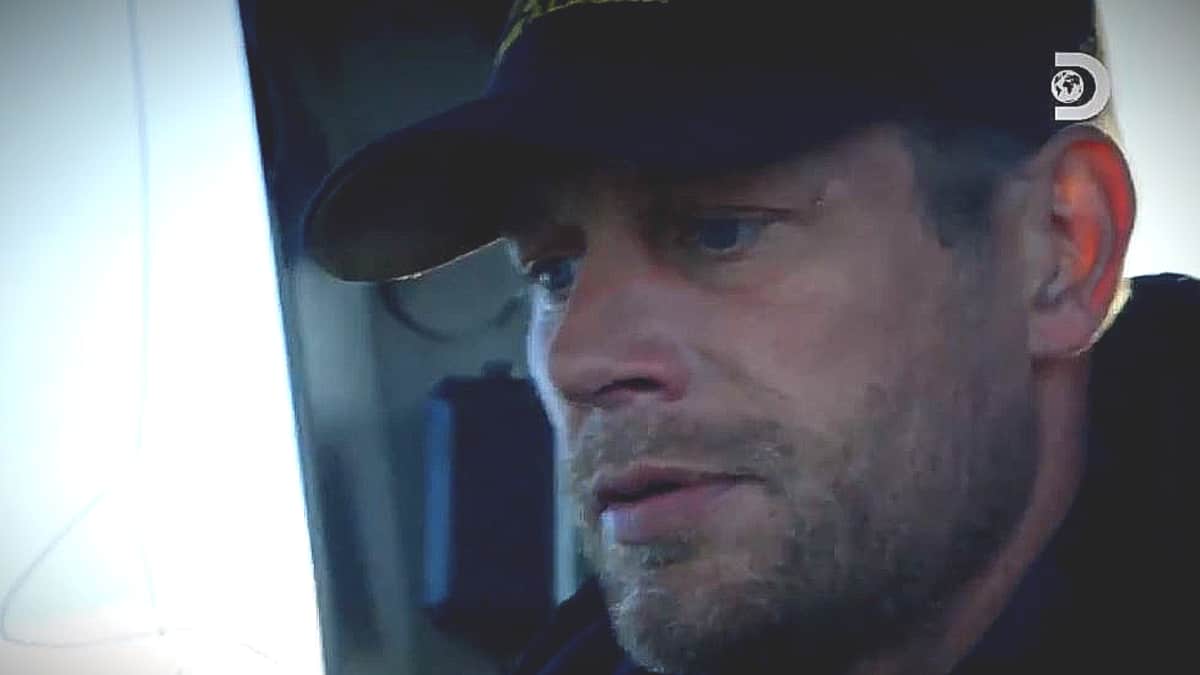
In a fascinating look at just how close Alaska is to Mother Russia, we have an exclusive clip ahead of tomorrow’s episode of Bering Sea Gold.
The preview shows one of the sea miners, Shawn Pomrenke, with his trusty sidekick son and dog, dredging up a rocky stretch in relatively shallow waters that he says was once a beach.
Of the area he is dredging, he says: “I haven’t been able to reach this before this was very land rich at one time. You could walk from here to Russia… now it’s water, but at one time this was a beach.”
Nome, Alaska, on the Norton Sound is where the Bering Sea Gold action takes place, and the stretch of the Chukchi Sea lies to the North of Russia, where Shawn references. This area was once a traversable pathway for native peoples of the arctic north, from the continent of Russia to North America.
The reality TV effect on Nome, Alaska
The Department of Natural Resources had to put disclaimers up on their website thanks to this series’ popularity!
They posted the following for those who want to dredge mine the shallows like Shawn is doing in the clip.
The DNR has received numerous inquiries about how to obtain a gold claim offshore of Nome, Alaska. These inquires are from viewers of the Discovery Channel’s reality series – ‘Bering Sea Gold’. Many of the viewers who have contacted DNR have indicated they would like to acquire their own gold claim in the Bering Sea so they could mine their claim like the miners in the series. This is not the case…The DNR had an offshore lease sale at Nome in fall 2011.
The Discovery Channel was at the Lease Sale. The DNR will likely not have another lease sale offshore of Nome until these leases expire in 2021. Gold claims cannot be acquired offshore of Nome, only leases in specific areas are ever issued.
They did note there are public mining areas up for grabs but with caveats:
“Because of the mild interest in gold at Nome the past number of years, the DNR created an offshore public mining area (320 acres in size) in 1998 east of Nome. Because of the substantial interest in gold at Nome with the significant recent increase in the price of gold, the DNR created another offshore public area (250 acres in size) in 2010 west of Nome.
Regardless of what the Discovery Channel Series may convey, gold claims in the Bering Sea are not available for the public to acquire. The only areas for the public to mine are the above two public mining areas. These areas have limitations however, and can only accommodate public dredges.”
Why is there so much gold off Nome in the coastal seawater?
A little investigatory sleuthing found that the Bering sea geographically is a prime sweet spot. It is a ginormous, freezing cold honey hole that has a ton of residual gold thanks to time, mother nature, and a confluence of geographical mojo that makes it juicy for prospectors.
You can thank the glaciers that pushed inland, leaving deposits of gold and rock sediment into the ocean, river beds, and ravines. The Bering also sits between two continents, and just to the north is the arctic ocean. Add to that the day in, day out wave action, and you get concentrated spots of gold.
Many geologists think that the gold-rich rivers that also dump out into the Bering are responsible for depositing gold into the area. The crashing waves also keep gold close to the shore. Plus, we know the Bering sea was above sea level, acting as a land bridge between Russia and the USA. Former GOP VP candidate Sarah Palin really could see Russia from her backyard, after all.
There’s even a Reddit thread by a user who identifies himself as a Bering Sea Gold Diver who adds:
The long answer, from reading the research of others is that a long time ago, magma formed a load deposit of gold in the mountains North of what is now Nome….As the theory goes, where the glacier met the sea, it dropped out material, this is called a glacial thrust zone. There are several distinct “beaches” where glacial alluvial gravel with gold is found in significantly higher concentrations. The modern beach, 1st beach at about +15, 2nd beach, about +35 feet, and third beach about +50 feet (I may have these elevations off by several feet), these were all mined extensively 115 years ago. The richest was the highest elevation (the first gold to drop out), each beach getting weaker as it got farther from the load source (aka mother load).
Also, in the episode, Vernon and his crew get stranded in the Yukon, and Ken suffers a mechanical setback. Fan-favorite Emily sends rookie diver Chase underwater.
Tune in to see if Shawn’s instincts are on the money and that son of his is a lucky charm after all:
Bering Sea Gold air Tuesdays at 9 PM ET/PT on Discovery Channel.